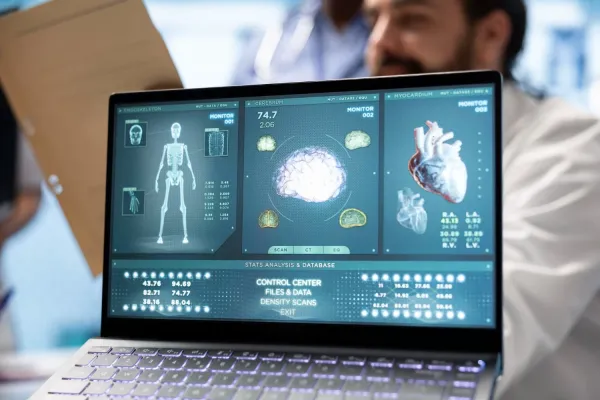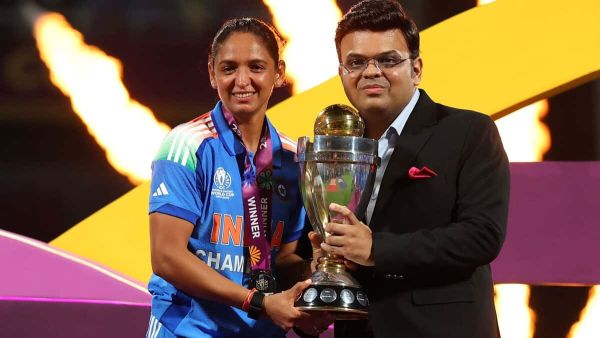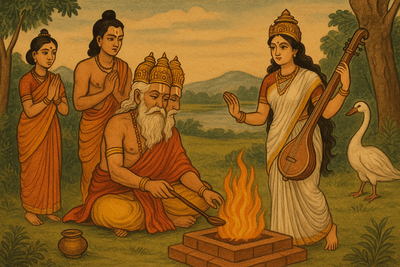Healthcare And AI: How Indigenous Deep Tech Is Redefining The Indian Healthcare Ecosystem
Sanjeev Kumar | November 3, 2025 6:23 PM CST

The TiEcon Delhi 2025 summit, organized by TiE Delhi-NCR, served as a vibrant convergence point for policymakers, industry leaders, investors, and startup founders, all of whom celebrated India's accelerating deep tech revolution.
The two-day event set the stage for powerful conversations and visionary ideas that will shape the future of technology and entrepreneurship in the country. A key focus was on the panel discussion, "Catalyzing a Healthier, Resilient Future," which addressed the critical integration of cutting-edge technologies like Artificial Intelligence (AI) and indigenous material science into the Indian healthcare system.
This discussion is vital because it addresses India's dual challenge: improving access and quality of care for a massive, diverse population while building self-reliance (Aatmanirbhar Bharat) in critical health technology. The insights from the panelists shed light on a future where technology can make health outcomes more precise, accessible, and secure.
How AI Is Entering The Indian Healthcare Space
The panel featured four industry innovators, each detailing their unique approach to integrating AI and deep tech into solutions. Their work spans diagnostics, preventative care, drug discovery, and antimicrobial protection, illustrating the breadth of AI's application in India.
Sunil Maddikatla, Founder & CEO, EYVA: EYVA is leveraging computer vision and machine learning to bring preventative care into the home. Mr Maddikatla's work focuses on analyzing subtle changes in the human body-such as gait, posture, and facial features-using common devices like smartphone cameras and smart mirrors. The AI interprets these visual cues to predict the onset of chronic diseases like diabetes and cardiovascular issues long before traditional symptoms appear. This offers an accessible, non-invasive method for early intervention, crucial for reducing the burden of lifestyle diseases in India.
Kumar Bagrodia, Founder & CEO, Arkni PhotoBioLife and NeuroLeap: Mr Bagrodia's companies operate at the intersection of neuroscience and technology. NeuroLeap utilizes advanced AI algorithms to analyze brain activity patterns. And create highly personalized digital therapeutics for mental health and neurological disorders. This allows for noninvasive, targeted treatment plans. Arkni PhotoBioLife is applying AI in photobiomodulation, tailoring light-based therapies based on individual biometric data to enhance cellular function. And healing, moving beyond one-size-fits-all treatments.
Venkatasubramanian Narayanan, Co-Founder & CEO, Peptris: Peptris is applying AI to revolutionize drug discovery, focusing on peptide-based drugs. Mr Narayanan's work involves using sophisticated machine learning models to predict the efficacy, safety, and synthetic feasibility of novel peptide sequences. This drastically accelerates the research and development pipeline. This offers a path to discover new treatments for challenging diseases at a fraction of the traditional time and cost. Thereby enhancing India's pharmaceutical capabilities at the same time.
Dr Anasuya Roy. Founder & CEO, Nanosafe Solutions: While primarily focused on material science, Dr Roy's work on an AI-driven micronutrient delivery system integrates AI for a consumer health application. Her core innovation is in active copper technology for permanent antimicrobial defense, providing a foundational layer of public safety against disease-causing pathogens.
Ethics In AI-Supported Healthcare
The panelists were unanimous in recognizing that the promise of AI in comes with significant ethical responsibilities. The core concerns revolve around data privacy, bias, and the ultimate accountability for patient outcomes.
The panelists stressed the paramount importance of data privacy and security. Given the sensitive nature of health information, robust encryption and adherence to strict compliance frameworks are non-negotiable. They argued that patients must maintain ownership and control over their health data, and systems must be transparent about how data is used.
Another critical ethical challenge highlighted was algorithmic bias. If AI models are trained predominantly on data from specific populations (e.g., urban or Western patients), they may perform poorly or inaccurately for diverse Indian demographics, potentially worsening health inequities. The panelists emphasized the need for locally relevant, diverse datasets to train AI, ensuring the technology benefits all segments of the population fairly.
Accountability, the consensus was that while AI can assist and provide unparalleled insights, the ultimate responsibility for a medical decision must remain with the human clinician. AI is a powerful tool, not a replacement for medical expertise and human empathy.
A Unique AI-Driven Micronutrient Delivery System
Dr Anasuya Roy's most innovative consumer health application is the patented AqCure technology. This system goes beyond germ-killing by turning everyday items into smart health tools. This is how it works:
- The AqCure technology is based on integrating micronutrient copper into polymer materials for products like water tanks and bottles.
- This provides a dual benefit: microbial safety (keeping stored water free of pathogens) and micronutrient fortification.
- The AI component is crucial for the metered, controlled dose delivery of essential minerals like copper, zinc, calcium, magnesium, and potassium into the water.
- The system is designed to release these micronutrients in safe, specific quantities tailored for everyday use.
READ NEXT
-
BCCI announces cash award of Rs 51 cr for Harmanpreet and Co.

-
Why India Is Falling in Love with Halloween

-
Why Hanuman's Heart Was the Temple of Rama — Not the World Outside

-
Why Lord Vishnu Married a Plant: The Untold Story of Tulsi and Shaligram

-
The Untold Story of Why Saraswati Cursed Lord Brahma After He Married Gayatri
